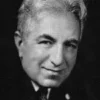The Puritan is one who uses the Cross as a hammer to knock in the heads of sinners.
H. L. Mencken (1880-1956) American writer and journalist [Henry Lewis Mencken]
A Little Book in C Major, ch. 4, § 26 (1916)
(Source)
Quotations about:
sinner
Note not all quotations have been tagged, so Search may find additional quotes on this topic.
A little sin is a big sin when committed by a big man.
Abraham Ibn Ezra (1092-1167) Spanish Jewish poet, philosopher, Biblical exegete [ר׳ אַבְרָהָם בֶּן מֵאִיר אִבְּן עֶזְרָא]
Sefer ha-Yashar (c. 1160)
Commentary on Genesis 32.9. Alternate translation:Therefore, a minor sin committed by a great personality is considered a major transgression.
[tr. Strickman and Silver (1988)]
He spoke the following parable to some people who prided themselves on being virtuous and despised everyone else, “Two men went up to the Temple to pray, one a Pharisee, the other a tax collector. The Pharisee stood there and said this prayer to himself, ‘I thank you, God, that I am not grasping, unjust, adulterous like the rest of mankind, and particularly that I am not like this tax collector here. I fast twice a week; I pay tithes on all I get.’ The tax collector stood some distance away, not daring even to raise his eyes to heaven; but he beat his breast and said, ‘God, be merciful to me, a sinner.’ This man, I tell you, went home again at rights with God; the other did not. For everyone who exalts himself will be humbled, but the man who humbles himself will be exalted.”
The Bible (The New Testament) (AD 1st - 2nd C) Christian sacred scripture
Luke 18:9-14, “The Parable of the Pharisee and the Tax Collector” [Jerusalem]
(Source)And he spake this parable unto certain which trusted in themselves that they were righteous, and despised others: Two men went up into the temple to pray; the one a Pharisee, and the other a publican. The Pharisee stood and prayed thus with himself, God, I thank thee, that I am not as other men are, extortioners, unjust, adulterers, or even as this publican. I fast twice in the week, I give tithes of all that I possess. And the publican, standing afar off, would not lift up so much as his eyes unto heaven, but smote upon his breast, saying, God be merciful to me a sinner. I tell you, this man went down to his house justified rather than the other: for every one that exalteth himself shall be abased; and he that humbleth himself shall be exalted.
[KJV]He also told this parable to some who trusted in themselves that they were righteous and regarded others with contempt: “Two men went up to the temple to pray, one a Pharisee and the other a tax collector. The Pharisee, standing by himself, was praying thus, ‘God, I thank you that I am not like other people: thieves, rogues, adulterers, or even like this tax collector. I fast twice a week; I give a tenth of all my income.’ But the tax collector, standing far off, would not even lift up his eyes to heaven but was beating his breast and saying, ‘God, be merciful to me, a sinner!’ I tell you, this man went down to his home justified rather than the other, for all who exalt themselves will be humbled, but all who humble themselves will be exalted.”
[NRSV]Jesus also told this parable to people who were sure of their own goodness and despised everybody else. “Once there were two men who went up to the Temple to pray: one was a Pharisee, the other a tax collector. The Pharisee stood apart by himself and prayed, ‘I thank you, God, that I am not greedy, dishonest, or an adulterer, like everybody else. I thank you that I am not like that tax collector over there. I fast two days a week, and I give you one tenth of all my income.’ But the tax collector stood at a distance and would not even raise his face to heaven, but beat on his breast and said, ‘God, have pity on me, a sinner!’ I tell you,” said Jesus, “the tax collector, and not the Pharisee, was in the right with God when he went home. For those who make themselves great will be humbled, and those who humble themselves will be made great.” [GNT]
It is easier to make a saint out of a libertine than out of a prig.
George Santayana (1863-1952) Spanish-American poet and philosopher [Jorge Agustín Nicolás Ruíz de Santayana y Borrás]
The Life of Reason or The Phases of Human Progress, Vol. 3 “Reason in Religion,” ch. 11 “Spirituality and Its Corruptions” (1905-06)
(Source)
WARWICK: So bad a death argues a monstrous life.
HENRY: Forbear to judge, for we are sinners all.William Shakespeare (1564-1616) English dramatist and poet
Henry VI, Part 2, Act 3, sc. 3, l. 30ff (3.3.30-31) (1591)
(Source)
There is no saint without a past, no sinner without a future.
Mirza Aḥmad Sohráb (1890-1958) Persian-American author, Baháʼí dissident
A Persian Rosary of Nineteen Pearls (1929)
I am unable to find an extant copy of Sohrab's book; despite his involvement with some of the early principals of the Baháʼí faith, he was eventually expelled from the group, and his writings, already marginally published, are now difficult to find. Even the publication dates of various editions of this work are unclear. But there are references to this quote being sourced there (1, 2, 3, 4).
This book should not be confused with the Persian Rosary (1257), a compendium of ethics by Persian poet Eddin Sadi.
Often misattributed to St. Augustine of Hippo, or referred to as being from an "ancient Persian Mass." There is no indication, though, that Sohrab borrowed the phrase from Oscar Wilde's similar statement.








